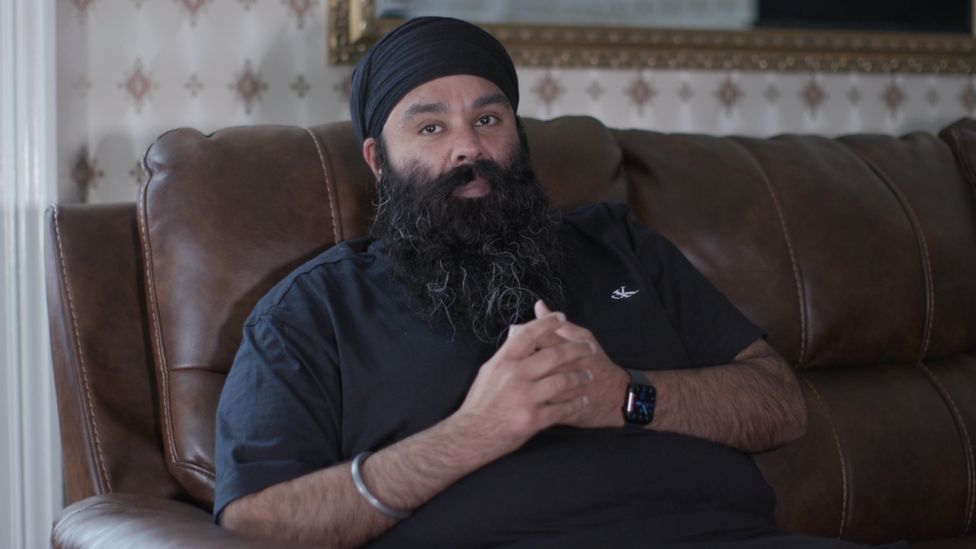-

-
-
Loading

Loading

Following recent developments in Canada, where Prime Minister Trudeau has claimed there is credible evidence of India's involvement in the killing of a Canadian Sikh, rumors are now circulating about the deaths of other Sikh activists around the world, including in the UK. One such case involves Avtar Singh Khanda, a 35-year-old known for his support of the creation of Khalistan, a breakaway Sikh homeland. Khanda passed away suddenly from an illness in Birmingham in June, leading some close to him to suggest foul play. However, West Midlands Police have thoroughly reviewed the case and found no suspicious circumstances, stating that there is no need for further investigation. Despite this, British Sikhs have long expressed feelings of being under pressure, as the Indian government openly demands that UK authorities address what they perceive as "extremism" within the Sikh community. This pressure has prompted individuals like Gurpreet Johal, a lawyer and Labour councillor from Dumbarton, to enter politics due to personal experiences within his family. Six years ago, Gurpreet's brother Jagtar, a prominent pro-Khalistan and Sikh rights activist, went to India to get married. However, he was allegedly forced into an unmarked car in the town of Rami Mandi in Punjab and has been imprisoned ever since, facing accusations of extremist activities. Jagtar claims to have been tortured and forced to sign false confession statements, yet he has never been tried. Gurpreet Johal commends Trudeau for standing up for his citizens while criticizing the UK government for failing to do the same. Human rights group Reprieve asserts that Jagtar's arrest in India was based on a tip-off from British security agencies, shocking British Sikh organizations. Despite a UN working group's call for Jagtar's release, citing arbitrary and discriminatory grounds for his detention, the UK government has not taken similar action. The UK's Foreign Office argues that advocating for Jagtar Johal's release may worsen matters, while Prime Minister Rishi Sunak claims his commitment to resolving the case as soon as possible. With strong ties between India and the UK, Sikh activism in Britain is frequently raised by Indian officials. A recent incident involving Sikh protestors vandalizing the Indian High Commission in London during a demonstration exacerbated tensions. Although support for Khalistan in India has decreased over the years, it has seen a resurgence in the Sikh diaspora, particularly in the UK. While Sikh activism in the UK has primarily been peaceful, disputes between Delhi and London arise over distinguishing "extremism" from freedom of political expression. Instances of violence also occur, such as the 2014 attack on retired Indian general Kuldeep Singh Brar, who led the Indian army's assault on the Golden Temple in Amritsar in 1984, resulting in the death of hundreds of Sikhs. British Sikhs feel under pressure due to demands from Delhi, as evidenced by raids on the homes of Sikh activists in London and the Midlands in 2018. Sikh groups assert that the fact that details of these raids appeared in the Indian media, which were not publicly shared by British police, suggests Indian involvement. Additionally, a recent review by the UK government's Faith Engagement Advisor focused heavily on Sikh "extremist and subversive activities," causing many Sikh leaders to interpret the report as a message to Prime Minister Narendra Modi's administration. Last month, the UK Home Office allocated £95,000 to address the issue of "pro-Khalistani extremism." Although calls for a separate Sikh state have diminished in India, tensions and divisions persist among British Sikhs. Concerns over misrepresentation are bringing together previously polarized sections of the Sikh community. Jagbir Jhutti Johal, a professor of Sikh Studies at the University of Birmingham, acknowledges that she has faced backlash from pro-Khalistan groups in the past but is troubled by the current scrutiny that she believes is unfairly painting a negative image of the entire Sikh community. She warns that the focus on tackling Sikh extremism may be counterproductive and raise concerns among younger Sikhs, who will now investigate the concept of Khalistan, alleged human rights abuses against Sikhs, and restrictions on freedom of expression.